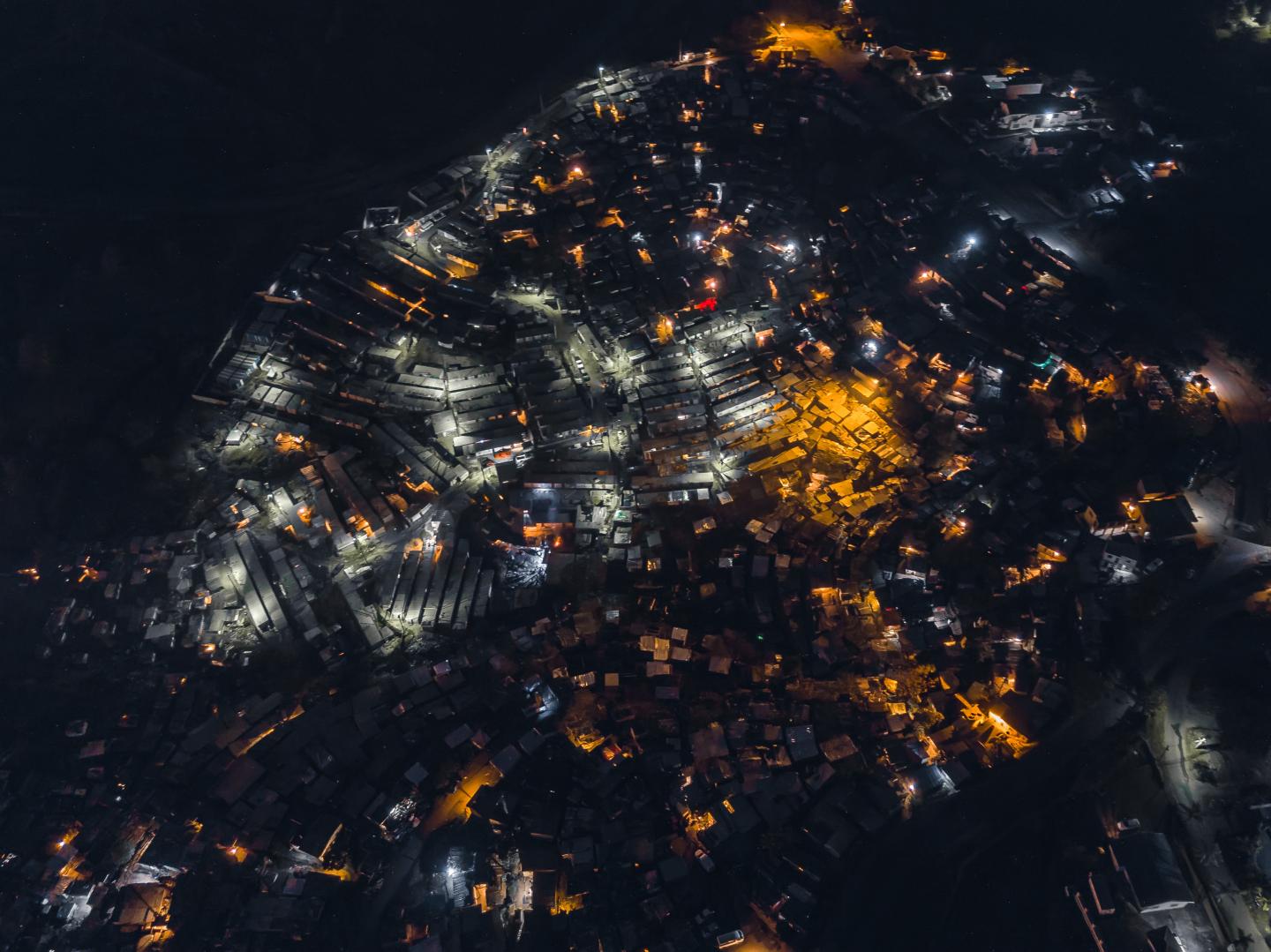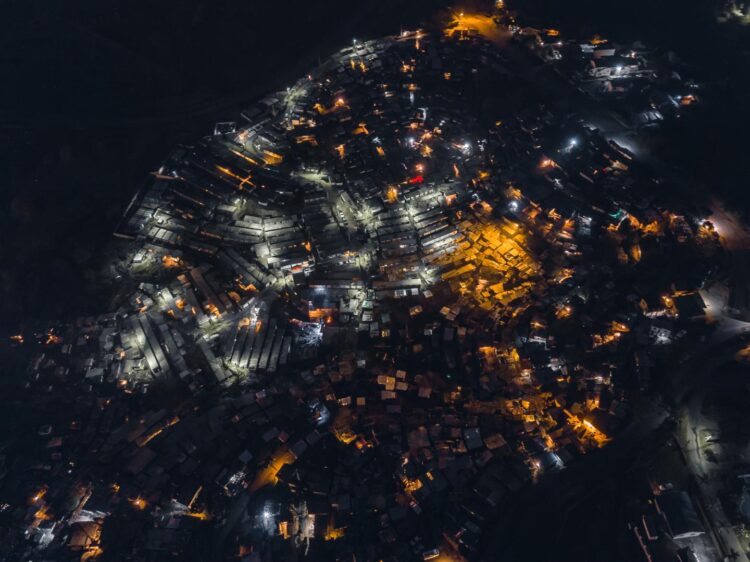As part of an international team of researchers, scientists at Paderborn University are developing modern systems to provide an uninterrupted power supply for rural areas in Africa – intelligent “microgrids” based on renewable energy resources

Credit: Wits-University, Shivan Parusnath
An international and interdisciplinary team of scientists takes up this challenge to find a solution for the African energy supply problem. Researchers at Paderborn University jointly with partners from the ECOLOG Institute Lueneburg, Makerere University in Kampala, Uganda, Nelson Mandela Institute of Science and Technology in Arusha, Tanzania, and the University of the Witwatersrand in Johannesburg, South Africa, are cooperating with corporate partners to set up a transnational platform for teaching, learning and research on electrical micro grids for rural areas.
“The concept of ‘energy access for all’ is essential if we want to foster development in a sustainable way,” explains the Paderborn project coordinator Professor Stefan Krauter at the Faculty of Computer Science, Electrical Engineering and Mathematics. “Our aim is to use intelligently controlled, local electricity networks based on renewable energy resources to provide a viable and robust power supply. In rural areas in particular, this is a fundamental requirement for people to have access to modern technologies and the internet.”
The project leader Tobias Klaus from the ECOLOG Institute insists: “For such an infrastructure to be sustainable, besides having robust and modular technological solutions, institutional, economic and cultural framing conditions have to be observed.” Therefore, also a specifically tailored training concept is critical to the success of the project, points out Paderborn education researcher Professor Christine Freitag: “‘Education for sustainable development’ is our principle. The aim of this approach is to equip people with the skills they need to be pro-active and independent, taking responsibility for shaping their own future. Working with our African partners we also take educational and gender factors into consideration, such as issues of equal opportunity and potential conflict areas with regard to ecological, economic and social challenges.”
The project will run for three years and is supported by funding of around 3.5 million euros from the Federal Ministry for Education and Research (BMBF) and it is administered by the Forschungszentrum Jülich GmbH (PtJ). The share for Paderborn University is 2.3 million euros.
The long-term objective of the African and German project partners is to enable local communities to make autonomous and lasting use of a jointly developed socio-technological infrastructure concept. To make this possible the research team is devising modern training programmes which will provide local specialists and educational institutions with the necessary practical knowledge.
Development needs energy
Affordable, reliable, and clean energy for all – this is one of the United Nations’ Sustainable Development Goals. Professor Stefan Krauter, Chair of “Electrical Energy Technology – Sustainable Energy Concepts” at Paderborn University, is well acquainted with the effects of “energy poverty”, and knows which regions are particularly affected: “The predominantly rural communities in East Africa today are still not even coming close to having a stable power supply,” explains Krauter, pointing out that this situation has a direct impact on quality of life for the people there. It is not only individual households that are affected, he explains, but also schools and hospitals. “No electricity means that pupils cannot study in the evening, that people cannot run competitive businesses and that vital medications cannot be kept chilled,” says the Paderborn researcher in summary.
Local, sustainable and intelligent solutions
The objective of this recently launched international project is to develop innovative ways to supply electricity to remote regions in East Africa. Krauter explains: “We are developing modern, mini electricity networks and conduct research on the interlinked social infrastructure. The aim is to set up small-scale, separate electricity networks, known as “microgrids”, each supplying energy to a geographically limited area such as a neighbourhood or a hospital complex, while taking into account the social environment.” Each of these micro-networks would have its own energy sources and supply options, such as solar installations, for instance, and localised energy storage. The advantage of this kind of stand-alone network: since there is no single large power station supplying electricity to a large number of users, interruptions cannot spread across a large transmission network. In this way local networks facilitate a stable, uninterrupted supply of energy, which need to be integrated into the social structure to be sustainable in the long term. “Even in places where electricity is in principal available, substantial energy shortages occur frequently. Power cuts regularly bring whole towns to a standstill,” says Krauter, describing the African energy dilemma. At some point in the future these microgrids could of course be integrated into the main network of a town or a region.
To manage the available resources in the most efficient way possible, and to allocate electricity to where and when it is needed or can be stored, the power network needs to be highly flexible. “Intelligent electricity networks, known as ‘smart grids’, include communications links between the various stakeholders in the energy system. Information exchange within the networks makes it possible to control the flow of electricity dynamically, constantly making precise adjust-ments to balance generation, consumption and storage at any point in time,” explains the Paderborn professor of electrical engineering. As an example, this would allow energy from a photovoltaic system to be distributed automatically – using batteries where necessary – to different end users. In the future the international team plans not only to supply rural areas with electricity in this way, but also to significantly improve the stability of large-scale national electricity networks.
?
Designed to suit the needs and capacities of East African society
To ensure that local communities will be able to make autonomous and lasting use of these new technologies, knowledge transfer is a key component of the new project. African experts and educational institutions will contribute their expertise. On this basis technological solutions will be developed together. Especially the African partners will help to ensure that these technologies are appropriate for the local conditions. The international team is therefore devising training programmes which will be available for local partners and users. The aim is to teach basic skills and knowledge in research training groups, for example, and through practical training placements: “The research and training programmes in our project are targeted to the needs of African communities, rather than to the high-tech standards of industrial countries,” emphasises Krauter.
Interdisciplinary work for innovative approaches
With the aim of finding long-term, sustainable solutions for the future, the project team includes both experienced and young researchers from several academic disciplines, and from both German and African institutions, who are all contributing their expertise. In addition to academic experts in “power electronics and electrical drive engineering”, “sensor technology” and “engineering didactics”, the project team also includes specialist researchers in cultural and economic sciences at Paderborn University, all working together to develop innovative solutions for energy supply.
Participants in the project also include industrial partners from the African energy generation and supply sector, as well as the Photovoltaik-Institut Berlin and Asantys Systems. Although the research emphasis here is on East Africa, the concepts and results should be applicable anywhere in the world in future, highlights Krauter.
###
Media Contact
Prof. Stefan Krauter
[email protected]
Original Source
https:/





